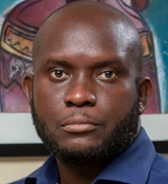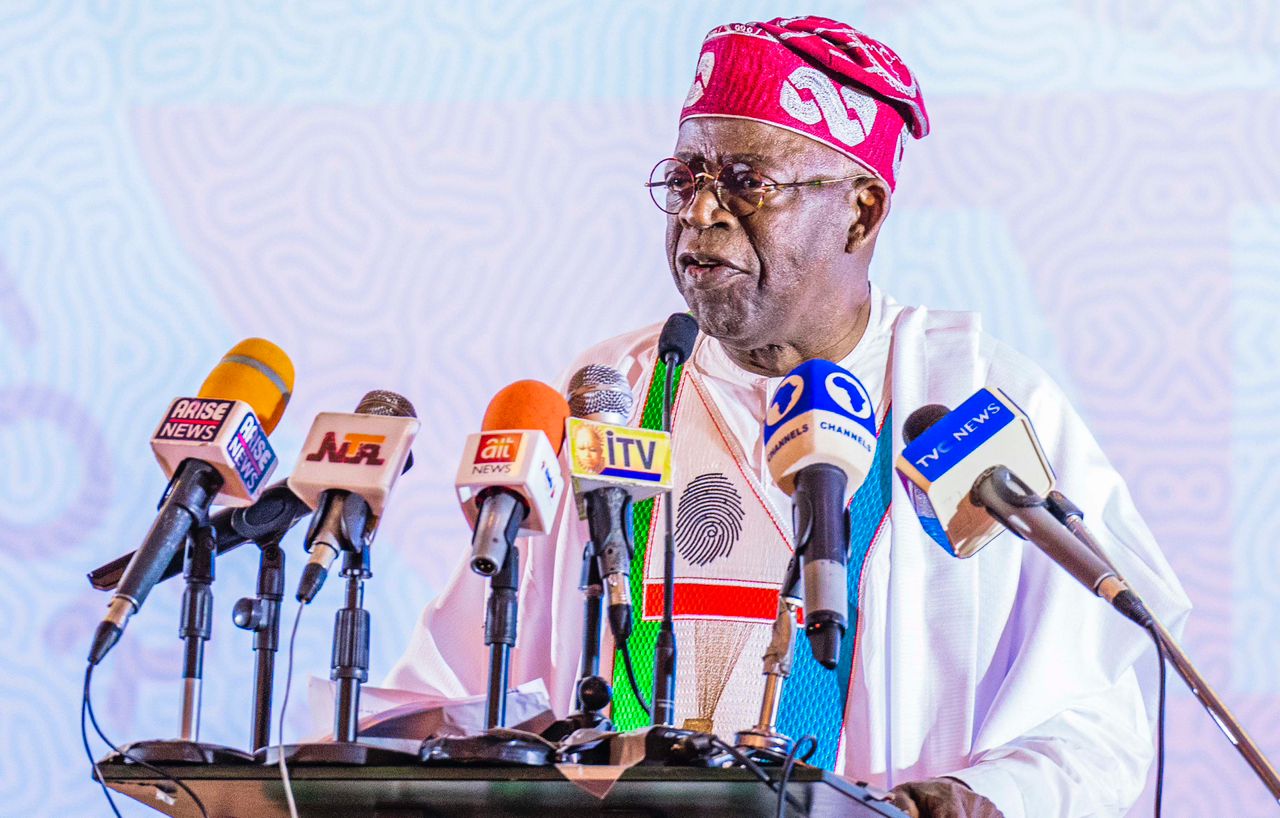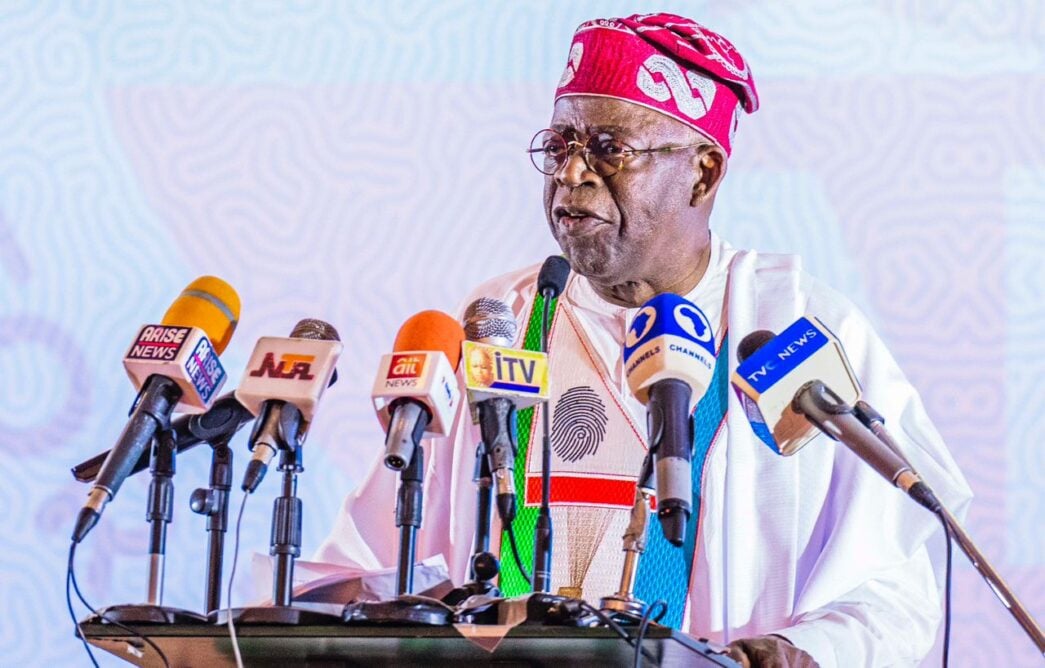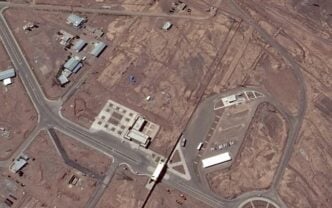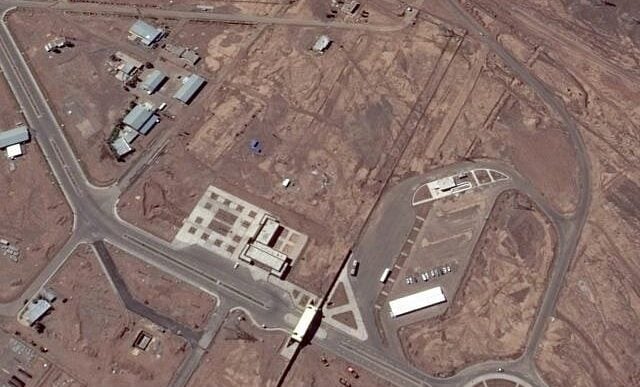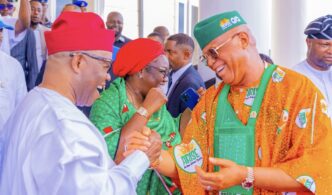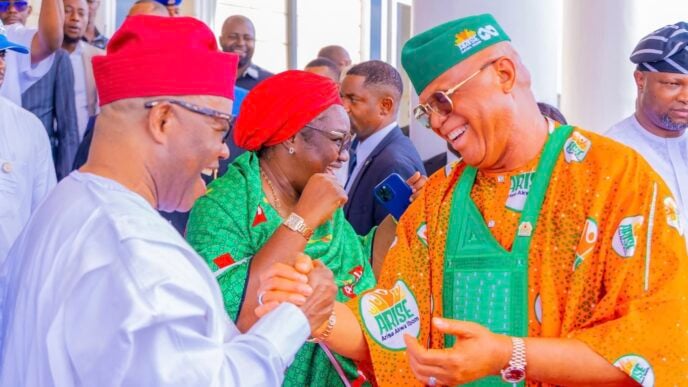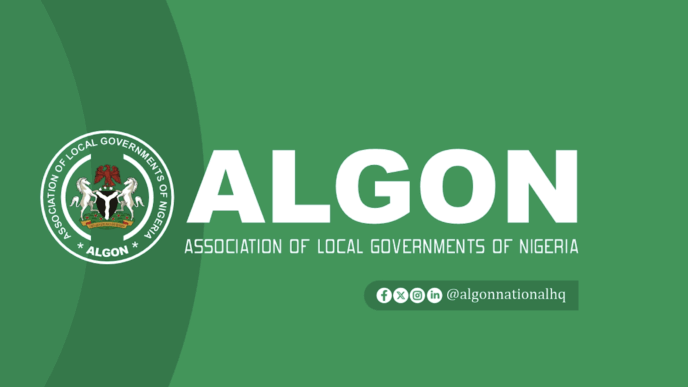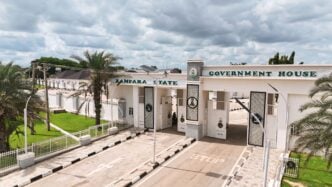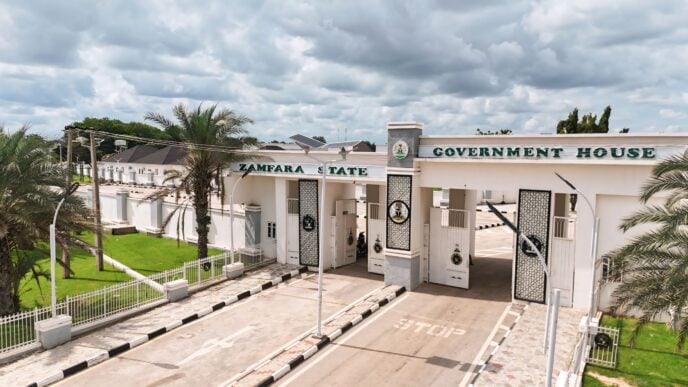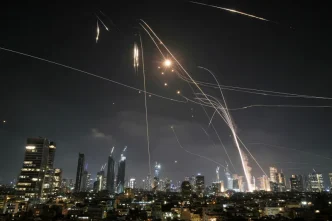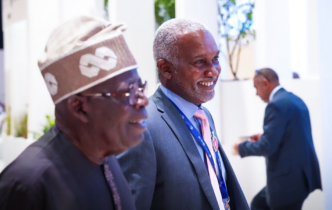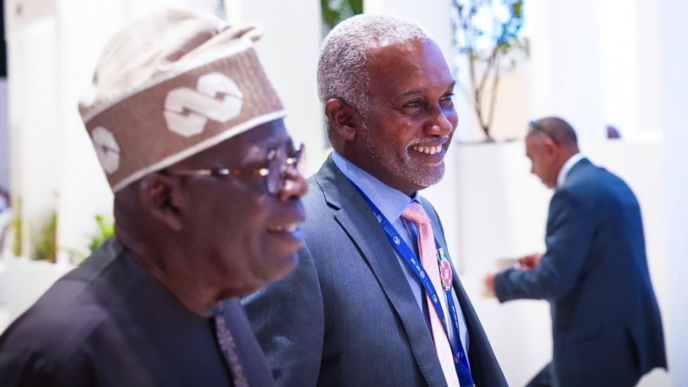Bola Tinubu
“I will work with businessmen and women and encourage them to make the South-East the Taiwan of Africa.” Bola Tinubu (November 24, 2022)
As President Bola Tinubu reached halfway into his presidential term on May 29, 2025, the campaign promise above he made during campaigns for the 2023 presidential elections, has become one of key variables that people of Nigeria’s South-East geopolitical zone are using to assess his performance, especially as considerations for the next elections in 2027 have somewhat commenced. While an assessment of federal government budgets, 2025-2026 Medium Term Expenditure Framework (MTEF), FSP and fiscal policies does not raise hopes about this campaign promise being met, the recent call by Andy Yih-Ping Liu, Chief of Taiwan Mission in Nigeria that hints on Tinubu’s 2022 campaign promise, and some interim commitment by Taiwan to support Tinubu in developing Nigeria’s tech sector plus meeting the political commitment to the geopolitical zone, provides a feasible opportunity for President Tinubu to start meeting a major campaign promise to the people of Abia, Anambra, Ebonyi, Enugu and Imo states of South-Eastern Nigeria.
The need to explore the geopolitical cum economic opportunity from Taiwan is further accentuated by the economic and fiscal realities that Tinubu faced upon assumption of office in May 2023. While he had made an elaborate policy commitment in page 51 of his ‘Renewed Hope’ policy document published on October 2022 to enable technology manufacturing in Nigeria up to $500 million, the fact that the Federal Ministry of Innovation, Science and Technology (FMIST) has just N69.2 billion ($30 million) of the 2025 federal government budget, plus a decline for many months in forecasted government revenue due to oil selling below the $75 per barrel benchmark in 2025 budget, shows that the financial resources to meet both national and regional campaign promises may not be readily available- hence the need to explore other feasible options.
What then are the details of the Taiwanese offer, and how feasible are they?
Taiwan’s envoy Andy Liu indicated that ‘Taiwan is willing to offer technological expertise to help harness Nigeria’s abundant resources in a mutually beneficial partnership’, in line with President Tinubu’s campaign promise of 2022. The Taiwanese government however requests that Nigeria renews the 1994 bilateral Agreement for Investment Protection and Promotion (IPPA), as well as return the Taiwan Mission Office to Abuja, after the federal government moved it to Lagos in 2017 and redesignated as a Trade Office.
Advertisement
Diplomatic relations and negotiations normally involve trade-offs. This provides a framework to assess the feasibility of the Taiwanese government offer. And for Taiwan, officially known as the Republic of China (ROC), the attitude of the mainland China or Peoples Republic of China (PRC) is a key variable. While China tries to discourage other countries from having closer relations with Taiwan due to its ‘One China’ policy, major economies of the world have however devised means of relating with both China and Taiwan, especially due to Taiwan’s technological expertise and economic opportunities. While Nigeria has a GDP of $363.6 billion and GDP per capita of $1,596 due to its estimated population of 227.9 million in 2023, Taiwan has a GDP of $751 billion and per capital of $32,000 due to its population of 23 million and ranks very high on the United Nation’s human development index. Taiwan is also home to Taiwan Semiconductor Manufacturing Company (TSMC), the world’s leading semiconductor firm responsible for fabricating over 90 percent of the world’s most advanced semiconductors. It therefore has the capacity to enable President Tinubu meet his key campaign promises. And this provides a prism to assess what the diplomatic trade-offs could be, especially as Tinubu aims to transform Nigeria to a $1 trillion economy by GDP in a few years.
Nigeria’s foreign policy is anchored on ‘strategic autonomy’, as consistently promoted by Foreign Minister Tuggar. In practice, it means that Nigeria makes its foreign and diplomatic decisions without undue reliance on other countries. Therefore, Nigeria is not obliged to take sides in Asian politics, a principle that French President Emmanuel Macron highlighted for Asian countries at the Asian Security Conference (Shangri-La Dialogue) in Singapore in May 2025. The United States (U.S.), European Union (EU) and other countries are all strategically autonomous in relating with both countries. India, the world’s fastest growing major economy and founding BRICS country with China, has continued to deepen relations with Taiwan, leading to semiconductor fabrication and other advanced technology agreements. Microsoft is also moving most of iPhone assembling from China to India. The current U.S. leadership’s geopolitics has led to significant changes in the internal rules-based order (RBO) established in the 1940’s by the U.S., with China, the EU, Arab countries and Asian countries all seeking new partnerships and alliances. These changes in international RBO have hit home, as in West Africa, Nigeria’s concentric core, the establishment of the Alliance of Sahel States (AES) in 2023 from ECOWAS, with support from Russia’s Africa Corp or Russian Expeditionary Corps (REK)- a new trend, is further justification for Nigeria to be more conscious of its economic development, and make practical decisions that can deliver a $1 trillion economy in a few years.
President Tinubu can therefore start fulfilling his major campaign promise by renewing the IPPA with Taiwan- with an additional Taiwan Office approved for Enugu, where the headquarters of the recently established South East Development Commission (SEDC) is located. Creative diplomacy can also allow for the re-establishment of a Taiwan Office in Abuja, but designated for the recently established North Central Development Commission. Nigeria allowed Taiwan maintain a diplomatic office in Abuja, and still secured from China, space and communications technology partnerships under President Obasanjo, and infrastructure partnerships under President Jonathan, before the office was relocated in 2017. Furthermore, businesses and individuals from South-East Nigeria have decades of business and induvial relationship with both Taiwan and China. The zone is also home to the first Confucius Institutes in Nigeria established with Hanban at Nnamdi Azikiwe University, with further locations at Federal College of Agriculture, Ishiagu in Ebonyi State, Federal Polytechnic Oko, Enugu State College of Education Technical. The zone therefore has the ability to juggle relations simultaneously with both countries, and can develop more creative ways for African countries to manage relations between both Asian political entities.
Advertisement
With the politics and foreign policy sorted, next is the feasibility of the proposition. Digital technologies manufactured in Taiwan include semiconductors and other software/hardware technologies. These require huge capital and financial outlay as Taiwan’s TSMC is worth $850 billion in 2024, with global semiconductor sales rising to $627.6 billion in 2024, an increase of 19.1 percent compared to total sales of $526.8 billion in 2023. Other additional requirements are skilled personnel and talent pool, large energy sources, water supply, and entrepreneurs who can source for markets. Government plays some role, though contained, to allow for entrepreneurship and innovation. The Taiwanese government through the National Development Fund of The Executive Yuan owns 6.31 percent of TSMC, just enough for some level of policy direction. South-East Nigeria will therefore be assessed with this framework, to attempt a validation of the feasibility of the proposition.
Mark Okoye, the managing director of the SEDC had on February 12, 2025 highlighted the broad economic goal of the agency to grow the economy of the zone from $40 billion to $200 billion by 2035, through interventions in the creative economy, tourism, agriculture and industrialization, while working with governors in the region, as part of efforts to make the region the preferred investment destination in Africa by 2035. The commission’s five-point plan and major programs include the Southeast Security Intervention Program, the Southeast Agro mechanisation program, the Southeast Industrialisation Program, the South East Venture Capital Programme (SEVCP) to facilitate start-ups and innovation, the South East sports development program, along with heavy investment in youth entrepreneurship and skilling of our young people. The commission aims for a $1 billion asset base by 2035 through its South East Investment Company (SEIC) and a $50 million South East Grassroots Recreation Infrastructure Development (SEGRID) for grassroots sports and youth development. Next will be to assess the individual states, and how ready they are to enable President Tinubu to meet his main campaign promise to the region within the next two years.
We begin with Enugu, where the SEDC has its headquarters. The state sits on a land area of 7,161 km2, with a population of 8.3 million and literacy level of 89.46 percent. It has deep natural gas wells that are essential for energy to power tech manufacturing plants as found in Taiwan, large deposits of glass sands, iron stones, gypsum, clay minerals, limestone, alum and coal, for which colonial explorers founded and built Enugu, the state capital. The state’s gas and petroleum deposits are mapped as oil wells OPL 914, OPL 905 and OPL 907, and was designated by the Revenue Mobilisation, Allocation, and Fiscal Commission (RMAFC) in December 2022 as an oil-producing state, following the recommendations of an Inter-agency Technical Committee, which identified oil production activities in the Anambra River Basin zones 1, 2, and 3 fields.
Beyond the availability gas resources and other minerals for powering tech manufacturing, the current governor of the state, Peter Ndubisi Mbah, has a business and governance background that makes him a strategic fit for negotiating feasible tech manufacturing transactions with Taiwanese tech firms such as TSMC and Foxconn. In his international business career which began in 1992, Pinnacle Oil and Gas Ltd which he is founder and former CEO, was at some point Nigeria’s leading company in the petroleum downstream sector by market share, and owns a $1billion petroleum terminal, as well as completed Single Point Monitoring (SPM), Conventional Buoy Mooring (CBM) and storage facilities at Lekki Free Trade Zone since 2021.
Advertisement
Mbah, a lawyer and former state finance commissioner, has introduced digital economy policies for the development of talent pool that tech manufacturing Taiwanese companies will require, as well as positioning Enugu as a hub for technology, since becoming governor in May 2023. They include the West Africa Stargate (WASGate) initiative—a multi-faceted tech infrastructure project that comprises state-of-the-art data centers, co-working spaces, and startup incubators for tech entrepreneurs and investors from across the globe, and the 260 Smart Green Schools being built, some completed, with modern ICT tools such as internet connectivity, ICT and science laboratories, virtual and augmented reality, multimedia libraries, digital smart boards, and tablets for teachers and students that are producing primary, and junior secondary school students with knowledge of digital technologies. There is also the Digital Literacy for All (DL4ALL) that will equip over 1 million residents with digital skills by 2027, which will be strengthened by the federal government’s Project 774 Connectivity Initiative, that will bring internet access to all 17 local government secretariats in the state. The state is also developing its Digital Innovation Complex, a centralized hub for tech startups that will link over 200 state-owned institutions to fast, reliable internet, for enhanced government service delivery and entrepreneurial growth.
The annual Enugu Tech Festival (ETF) from May 7 to 9, 2025, under the theme ‘Coal to Code’, officially signaled the strategic shift by the state from its history with coal extraction, to the digital economy. The ETF described by Dr. Bosun Tijani, Nigeria’s Minister of Digital Economy and founder of Nigeria’s first tech hub as the biggest tech conference that has ever happened in Nigeria, with thousands of tech enthusiasts, investors, industry leaders, symbolizes the push in cresting a sustainable talent pool and ecosystem that Taiwanese tech firms can harness for tech manufacturing in the state. Hopefully, the ETF in 2026 should have Taiwanese tech firms such as TSMC, Foxconn, Gigabyte Technology and Oursky as organizing partners, for more structured engagements in line with Andy Liu and the Taiwanese diplomatic pledge.
To streamline the talent pool in the state for the type of industries envisaged from Taiwanese firms, universities such as the University of Nigeria, Enugu State University of Science & Technology, Caritas University and Godfrey Okoye University, which have computer science and engineering programs, can be partnered with Taiwanese universities such as National Taiwan University (NTU). The Global Undergraduate Program in Semiconductors (GUPS) at NTU can be rolled out at select universities in Enugu and South-East Nigeria, as the Trans-National Education (TNE) 2023 policy of the National Universities Commission (NUC), Nigeria’s university regulatory body, provides a pathway for universities in Enugu to commence the GUPS program. Also, the Core Curriculum Minimum Academic Standard (CCMAS) policy by NUC in 2023 that allows universities to enhance specializations for their environment and advantage, provides frameworks for the Enugu government to embed GUPS programs in select universities for efficient supply of talent pool, commencing in 2025. Utilising the TNE and CCMAS policies for speedy curriculum changes to existing electrical and computer engineering programs at these schools towards GUPS on-boarding, is possibly what Tinubu can flag-off fastest, alongside the IPPA renewal with additional Taiwan Office in Enugu, as part of his Taiwan campaign promise.
Beyond available rivers and water bodies that can support tech manufacturing, the state’s soon to commence Enugu Air airline and Akanu Ibiam International Airport- with a cargo section, that has daily international flights for evacuation of manufactured technology products across Africa and other parts of the world, is another critical infrastructure for Taiwanese investment. And on international linkages, Governor Mbah has also demonstrated the ability to manage international partnerships, which is not surprising, going by his background. Beyond supporting the establishment of a United Kingdom (UK) visa centre in the state in September 2023, he played host to the Austrian Ambassador to Nigeria Ambassador Schlesinger in December 2024, during which a $100 million infrastructure deal was consummated for an Austrian firm in the state. At the multilateral stage, he led the State Governors Roundtable at the last edition of the Commonwealth Trade and Investment Summit, (CTIS), in London from April 7-8, 2025. The CTIS is organized by the Commonwealth Enterprise and Investment Council, (CWEIC), with an official mandate from the Commonwealth Heads of Government to facilitate trade and investment. With its human resource and governance factors, Enugu is primed for Taiwanese tech manufacturing investments.
Advertisement
Abia state is next in the zone for assessment. With a population of 4.8 million in 6,320 km2, the state has a literacy level of 94.24 percent and internet penetration level of 58 percent. Located in Nigeria’s niger-delta with rivers and water bodies that can sustain tech manufacturing, it is one of the oil and gas producing states in the country, with the first refinery in state due for completion in 2026. Shell is a leading international oil corporation operating in the state, and Shell Nigeria Gas operates a world class gas transmission and distribution network that supplies gas to industrial concerns in Aba, the economic capital of Abia state. A budding automotive sector exists, with companies such as Roxettes Motors Vehicle Manufacturing, at Obuaku Industrial City, a free trade zone. While the state’s airport is under construction, the nearby Imo Airport and Port Harcourt airport are available for international import and export of inputs and manufactured tech products.
The industrial presence of Shell in Aba, commonly referred to as ‘Taiwan of Africa’ does not only demonstrate the availability of energy resources that Taiwanese tech manufacturing firms will require for operations, but also the innovation and manufacturing ingenuity of the commercial city. There is also some evidence of historical individual economic relations between private businesses in the city and Taiwan. In recent times, officials from Taiwan’s Maxxis Tyres have visited the state, and identified a location for the establishment of a manufacturing plant for motorcycle/tricycle tires, car tires, light trucks, ATVs, trailer tires.
The manufacturing activities in the state which exports products across Africa and beyond, are evident in the availability of talent pool in the state which firms such as TSMC, Foxconn, Gigabyte Technology and Oursky can harness, not just for manufacturing, but also for sales in new markets across Africa and beyond. Abia State University, Rhema University, Clifford University, Spiritan University and Gregory University – established by the founder of Skill ‘G’, a leading science, technology and innovation firm, are some of the academic institutions that can produce more advanced talents by utilizing the TNE and CCMAS policies of National Universities Commission to establish the Global Undergraduate Program in Semiconductors (GUPS) by the National Taiwan University (NTU). Prof. Ndubisi Ekekwe, founder of the Intel FGPA certified semiconductor firm FASMICRO, who also has industry patents, plays an advisory role in the government of the state headed by Governor Alex Otti.
Advertisement
Governor Otti is an economist, with an extensive banking sector career that saw him head one of Nigeria’s leading banks with international operations. He subsequently established one of Nigeria’s fastest growing commercial banks. In that period, he played a key role in the financing and completion of Geometric Power facility, Aba, an $800 million electricity generating and distribution facility that includes a 181 megawatts power plant in Aba, and with the involvement of the World Bank and African Export-Import Bank (Afreximbank). Governor Otti therefore has the international finance and business experience required to engage Taiwanese firms such as TSMC and Foxconn, in transactions that can lead to the establishment of capital-intensive tech manufacturing facilities in the state.
As further demonstration of Governor Otti’s drive in enhancing the state’s digital economy, the state in May 2025 went into partnership with MTN Nigeria, one of Africa’s largest telecommunications and digital economy companies. This partnership will lead to 100 percent coverage of the population and the space of the whole Abia with broadband access before year-end 2025; a device ownership scheme to support Abia civil servants with work tools such as acquisition of laptops, smartphones, and Wi-Fi devices; and provision of cloud services and computing infrastructure for government operations and digital governance. Other areas in the partnership include the establishment of Abia Digital Mall to support small businesses and the informal sector, and will involve the usage of multiple digital tools to drive SME growth in Abia State; the rollout of 4G and 5G services in Umuahia, Aba, and Ohafia before year-end 2025; and creation of digital marketplace to drive e-governance and online commerce in the state.
Advertisement
Otti’s hosting of Israeli Ambassador to Nigeria Michael Freeman in May 2024 at Umuahia, the state’s capital, where partnership opportunities for Nigerian entrepreneurs and innovators with Isreal were part of deliberations, is another demonstration of growing opportunities in the state, given Isreal’s role in the global semiconductor and wider tech industry. These all make Abia a viable business environment for tech manufacturing by Taiwanese firms, with good prospect capabilities for various stages of semiconductor production, including processes, assembly, packaging, and testing.
Anambra is the next state in focus. With an estimated population of 7 million people within 4,844 km2, and literacy level of 92.11 percent, the oil producing state consists of an industrial city at Nnewi, a commercial city at Onitsha with one of the largest markets in West Africa, a river port along the River Niger at Onitsha, a capital city at Akwa, and the Chinua Achebe Airport that is on course to commence international operations. This perhaps explains the Anambra as African-Dubai-Taiwan-Silicon Valley (ADTS) philosophy of the current government in the state, whereby the industrial, high-tech, commercial and tourism component cities vision of the state is properly conceptualized and further developed. Anambra has the talent pool, gas for energy, government policy, rivers and water bodies, and an industrial base with Taiwanese economic relations of over 50 decades, that makes it an ideal location for the expansion of Taiwanese tech manufacturing, especially in various stages of semiconductor production, comprising processes, assembly, packaging, and testing.
Advertisement
Like Aba, Nnewi is also sometimes referred to Taiwan of Africa, and for good reasons. Home to many tech manufacturing firms, businessmen from the city established economic relations with Taiwanese manufacturers since the 1970’s, as Taiwanese partners increasingly provided options that were more competitive than Japanese firms which previously held sway. The Nnewi-Taiwan relationship continued into the 1980’s when structural economic reforms in Nigeria necessitated the establishment of auto spare parts and other products manufacturing in the city, initially with technological support from Taiwanese partners, then to motorcycle assembly, and subsequently to full-scale manufacturing. Some of the industrial concerns in the city include Nigeria’s first indigenous vehicle manufacturer Innoson Vehicle Manufacturing (IVM), Cutix Plc and Adswitch Plc which manufacture electric cables and electric switchgear, the Ibeto Group for synthetic marble, batteries, brake pads and linings, Armak for rice and maize processing, Intercontinental Feed Mills, Chicason Industries and Ngobros Industries. Nnewi and environs are therefore well positioned by virtue of business environment and historical manufacturing and commercial links with Taiwan for over 50 years, to play host to Taiwanese tech manufacturing firms such as TSMC and Foxconn, and has good prospective capabilities for various stages of semiconductor production, including processes, assembly, packaging, and testing.
The state is governed by Chukwuma Charles Soludo, a professor of economics, with working stints at major multilateral organisations such as the International Monetary Fund (IMF), World Bank, United Nations, University of Cambridge, University of Oxford, Brookings Institution, among others. He has also been Governor of the Central Bank of Nigeria (CBN), Presidential Economic Adviser and Chief Executive of National Planning Commission of Nigeria. Beyond his attraction to Taiwan’s development as encapsulated in his ADTS policy, Governor Soludo has the experience, capacity and networks to facilitate high-end tech manufacturing by organisations such as TSMC and Foxconn into the state. He has demonstrated his understanding of international financing for big-ticket projects, such as the agreement between Anambra state government and Afreximbank, that has led to the establishment of bankability for key projects in the state, such as the Ikenga Mixed-Use Industrial City, the Anambra Export Emporium, the Akwaihedi Unubi Uga Automotive Industrial Park, as well as any other project agreed upon by the parties.
Governor Soludo has demonstrated his commitment to creating a valuable talent pool for ICT, with the phased development of a Solution Innovation District, as part of plans to train 1 million residents in relevant digital and tech skills, as well as making the capital city of Awka the fintech start-up capital of Africa. Free WI-FI services are provided at various locations, and right-of-way taxes have been waived to support broadband penetration in the state. Over 2, 000 kilometers of fiber ducts have been deployed across the state to boost digital connectivity, while the government is also developing a Data Centre. Nnamdi Azikiwe University (UNIZIK), Chukwuemeka Odumegwu Ojukwu University, Paul University, Madonna University and Tansian University are some of the higher education institutions in the state that can utilize the TNE and CCMAS policies of NUC together with the Solution Innovation District to enhance sustainable talent pool development with the onboarding of the NTU GUPS at their universities.
A gas development agreement (GDA) on Oil Mining Lease (OML) 143 located in Anambra was signed in April 2021 between Nigerian National Petroleum Corporation Limited (NNPCL) and Sterling Oil Exploration and Production Company (SEEPCO) for the development of the 1.2trillion cubic feet Non-Associated Gas oil block, as part of Federal Government’s National Gas Expansion Programme (NGEP). Gas from the project would be processed at the Ashtavinayak Hydrocarbon Limited (AHL) 125million standard cubic feet (mmscf) of gas per day gas plant located in neighbouring Kwale, Delta State, and make dry gas available for the proposed 650 megawatts NNPC/SEEPCO Independent Power Plant. The GDA is the first Agreement in Nigeria that fully separates gas development from oil production, and potentially provides Taiwanese tech manufacturing firms with reliable energy for manufacturing.
The next state to be assessed in the zone is Imo State. Located in the country’s Niger-delta and land mass of 5,530 km2, the state’s estimated population of 5.5 million has a literacy rate of 96.43 percent, the highest in Nigeria. With Imo River and other water bodies that can support tech manufacturing, the state has about 50 percent of Nigeria’s gas deposits according to some industry estimates, which is relevant for gas to power tech manufacturing firms such as Taiwanese tech fabrication plants. Chevron, Agip, Shell, Waltersmith, Seplat and Addax are some of the oil companies operating in the state, with Waltersmith also operating a refinery. Still on energy supply for tech manufacturing, the $650 million Assa North-Ohaji South (ANOH) Gas Development Project owned by Seplat Energy and NNPCL, which is one of the largest gas processing plants in Nigeria with a total processing capacity of 600 million standard cubic feet per day (mmscfd), was commissioned in May 2025.
The state is governed by Hope Uzodimma, who as Chairman of governors of the current ruling political party- has some national leverage. Beyond politics, he has demonstrated a drive for developing a huge talent pool of techies, with the establishment of a Ministry of Digital Economy and E-Government (MDEEG) since assuming office in 2020. The Imo Digital Economy Agenda (IDEA) 2022-2026 is the policy framework that has grown the state’s ICT sector. It is a five-year plan with five pillars designed to ensure a robust digital economy in Imo State, consisting of Digital Literacy and Skills; Solid Infrastructure; Soft Infrastructure; Advocacy; and Partnership & Collaboration.
‘SkillUp Imo’ is a project under the first pillar, that aims to provide free training for 300,000 Imolites in relevant areas of software development, artificial intelligence, data science, cybersecurity, computer appreciation, cloud computing, CCTV, LAN, Graphics, UIUX, Project Management, Blockchain, Fibre Networking and Spicing, Fintech, Entrepreneurship and Digital Marketing- which align with relevant skills for the Fourth Industrial Revolution. Over 40,000 Imolites have been trained across two training cohorts since 2023, thereby providing a talent pool that Taiwanese tech firms will find useful. Many graduates of the program have been connected to high paying job opportunities within and outside the state, with many pursuing sustainable careers with companies like Konga, Adminting, Silicon Valley, Zinox, and 421 Films, among other remote gigs. Tech startups such as WritersGig.com, SMFEST, SiliconAfrica.org, Diskox.com, Adminting, Vox Populi Networks, Basetech Hub, Monapp, StarlearnAI, Cafe One, Susiegraphix, Uniqueaugusta have presence in the state.
This talent pool efforts have been gaining traction, as the state government has developed strategic partnerships with CISCO, Microsoft (via Wootlab Foundation), and a Memoranda of Understanding signed with the European Digital SME Alliance, which provides several windows of opportunities for SkillUp Imo graduates, connecting Imo State talent with employment opportunities in Europe while simultaneously enriching the West African tech ecosystem. There is also a partnership with the United Nations Development Programme (UNDP) that provides 1,000 SkillUpImo graduands opportunities for placement in tech-driven industries across the state.
Furthermore, there is the Imo Digital City, established by the state government to support its aspiration as one of Africa’s digital economy locations. In March 2025, Imo Digital City entered a transformative partnership with the US Market Access Center (USMAC) California, the Silicon Valley-based startup accelerator and innovation enabler that helps international tech companies with global market access, and helps governments with ecosystem creation, to support continental digital hub aspiration. The partnership with U.S.-MAC to train founders in the startup space is the first with any sub-national, with projected investments of $15 million.
Highlights of the partnership include enhanced Digital Skills Training in high-demand technology fields for the global tech market; and Startup incubation & acceleration with mentorship from Silicon Valley experts, business acceleration programs, access to global markets, funding & investment opportunities, and certifications from the Sutardja Center for Entrepreneurship and Technology, University of California, Berkeley (UC Berkeley). It also includes Attracting international investment and global partnerships with government pro-business policies and infrastructure for FDI attraction, complemented by a thriving ecosystem where tech companies can establish operations, hire local talent, and scale internationally. With its partnerships that also includes Ericsson, Imo Digital City is building scalable startups, attracting tech giants like Microsoft, Cisco, and Huawei, and launching the African Founders Hackathon to shape the future of tech from right here.
The training locations in the state for its Skill UP program include Federal University of Technology, Owerri (FUTO), Federal Polytechnic, Nekede, Alvan Ikoku Federal University of Education, Imo State University, Polytechnic, Omuma, University of Agriculture and Environmental Sciences, Umuagwo, K.O. Mbadiwe University, Ideato and MDEEG learning centre. FUTO also has an Engineering Studio and ICT Hub with a 100 – seater ICT facility equipped with computers, smart boards, and two 50 – seater practice workshops, jointly constructed by Shell, NNPCL TotalEnergies, ENI- Agip and NCDMB. The universities among these locations are equipped to utilize the TNE and CCMAS policies of NUC to establish the NTU GUPS program at their campuses, for more efficient semiconductor talent pool supply.
For tech manufacturing locations in the state, there is the Orashi Special Energy Free Trade Zone (OSEFTZ) under construction. The OSEFTZ will contain the Orashi River Development and Port Facility where a dredged Oguta Lake / Orashi River channel to the Atlantic Ocean will have sufficient depth to berth small to medium size vessels; the 380MW Egbema Power Plant; a Mini LNG Plant; an Industrial Cluster for multiple manufacturing and industrial ventures and an industrial cluster that will be powered by industrial gas fields both in proximity and within the zone.
For product standard and testing before export, the state government and Afreximbank are developing a modern African Quality Assurance Center (AQAC) near the Imo Airport- which operates regular domestic flights and periodic international flights. The AQAC will provide cutting-edge testing, inspection, and certification services to ensure African goods meet rigorous international standards, thereby eliminating the costly and time-consuming need to send Nigerian products abroad for quality assurance. All of these make Imo a viable location for Taiwanese tech companies such as TSMC, Foxconn, Gigabyte Technology, and Oursky.
Ebonyi state is the final state in South-East Nigeria to be assessed. With a geographical area of 6,400 km2 and estimated population of 3.3 million, plus a recently completed airport soon to commence regular commercial operations, the state’s leadership under Governor Francis Nwifuru, has been making institutional efforts to enhance the digital economy potential of the state. His predecessor and current Minister of Works, Senator David Umahi, was governor and host when Tinubu made the campaign promise about Taiwan to the people of South-East Nigeria in 2022. Just as Senator Umahi has been delivering on infrastructure projects, it is rational to assume that he and Ebonyi state will expect Tinubu to fulfill his campaign promise.
Official licensing and approval were given for the Ebonyi State University of ICT, Science and Technology in January 2025, which will provide relevant talent pool for tech manufacturing either in the state and the zone. There are also the Alex Ekwueme Federal University and Ebonyi State University within the state, which can utilize the NUC TNE and CCMAS policies of 2023 to enhance talent pool quality within the state, such as establishing partnership with NTU for GUPS programs on their campuses.
From the elaborate assessment of the states in the South-East Nigeria, they have the talent pool, energy resources, environment and entrepreneurs to attract Taiwanese tech manufacturing, and source markets for the products across Africa and other paths of the world. Most of the governors in the zone also have the financial background and experience to close out deals with Taiwanese firms for the establishment of more tech manufacturing facilities in the zone. This will require coalescing resources for a feasible start, which SEDC can provide both a platform and framework for. There are financial risks and geopolitical contentions with such investments, but it also provides a subsequent learning process for other zones in Nigeria- after the heavy lifting has been done. The SEDC will however require foreign policy leverage from FG, to enable them follow through on Taiwanese readiness, and meet President Tinubu’s 2023 campaign promise.
The Governors of the zone and the SEDC should engage experts such as Prof. Konrad Young in line with these efforts. Prof Young obtained his doctoral degree in Electrical Engineering and Computer Science from the University of California, Berkeley, and from 1998 to 2005, was the R&D Director at TSMC, responsible for developing advanced processes at 0.18-micron, 0.13-micron, and 65-nanometer. He can work with universities in the zone for talent pool management and tech industry policy advisory, given his academic and industry experience. This will be similar to how businesses and entrepreneurs in Nnewi and Aba developed relationships with Taiwanese auto parts decades ago, as such trade patterns with Southeast Asian companies have continued into present times. A demographic assessment of businesses and entrepreneurs that import and retail consumer electronics across Nigeria and many parts of Africa, would validate this enduring economic relationship.
The relationship with Southeast Asia (SEA) is something that the SEDC should be concentrating on developing further, as SEA is now a major frontier of the semiconductor manufacturing chain known as Assembly, Testing, and Packaging (ATP) or Outsourced Semiconductor Assembly and Test (OSAT) industry, due to factors and indices that are also present in South-East Nigeria. The global OSAT market is projected to grow from USD 47.1 billion in 2025 to USD 71.21 billion by 2030, with a CAGR of 8.62 percent, due to demand for advanced packaging and testing services, driven by innovations in artificial intelligence, 5G technology, and the Internet of Things. With geopolitical tensions reshaping supply chains and SEA harnessing arising opportunities, the SEDC working with SEA can position South-East Nigeria as a location for efficient OSAT operations. This will see the SEDC and Nigerian firms in the near future invited to events such as SEMICON Southeast Asia.
While the scale of responsibility for attracting top-tier Taiwanese tech manufacturing companies into Nigeria may seem challenging, Nigeria’s economic and political history however shows that policy has been an effective tool of government in the development of new sectors. Many of the most thriving and tax revenue yielding sectors in Nigeria, such as telecommunications, banking, insurance, digital economy, private education and broadcasting sectors were created and enabled by structural reforms polices, especially under the administration of Gen. Ibrahim Babangida (IBB). They include Decree 75 of 1992 for the telecoms sector, leading to an increase from 400,000 fixed phone lines and less than 200,000 regular internet users in 1999, to 172.9 million phone users and 141.9 million internet users in April 2025. The telecoms and ICT contribution to GDP has also increased from 3.08 percent in 2001, to 17 percent in 2024. The BOFIA Decree of 1991 and its amendments have led to growth of Nigerian financial institutions that now play more international roles, with 4.25 percent of real GDP in 2022. Similarly, Decree No. 38 of 1992 has led to a thriving broadcasting industry, while Decree No. 9 of 1993 has led to a thriving private education sector.
It is also within IBB’s administration that Nigeria established formal relation with Taiwan, with the signing of a memorandum of understanding between the Governments of the Federal Republic of Nigeria and Taipei on November 21, 1990. The Taipei Mission in Nigeria was established in April 1991, while the Nigeria Trade Office in Taiwan was established in November 1992.
We can only assume that members of IBB economic team such as ex Finance Minister Dr. Kalu Idika Kalu may have encouraged such economic and diplomatic relations. Dr. Kalu worked in the World Bank East Asia and Pacific Department as country economist, with practical experience supporting the countries that emerged as ‘Asian Tigers’ such as Japan, Korea, Taiwan, and Hong Kong. The kind of economic aspirations Tinubu has for Nigeria, such as growing GDP to $1 trillion in a few years, require a similar worldview. Development can be a hard process, but is possible with determination. Such determination will also be required to meet potential headwinds, such as the legislative changes by Taiwan’s Parliament in April 2025, which amended the Industrial Innovation Act through new rules in Article 22 of the Act that introduces strict new export controls of cutting-edge processes and outbound investments by Taiwanese semiconductor firms. The changes centered on “N-1” rule, which restrains semiconductor firms from exporting their most advanced semiconductor manufacturing technology, as a means of enhancing Taiwan’s geopolitical advantages. Only technologies that are least a generation behind are eligible for manufacturing export. While Nigeria should be fine with N3P process node when things commence, given that TSMC begins use of N2 process by end of 2025, Andrew Liu should be expected to liaise with his home government to ensure that this legislation does not hamper the promise of tech manufacturing investment by Taiwanese firms in Nigeria.
Anniversaries usually provide opportunities for stocktaking on promises made, as well as projections for future decisions. President Tinubu’s second mid-term anniversary on May 29, 2025, provided an opportunity to assess key commitments made, especially to ‘to make the South-East (Nigeria) the Taiwan of Africa’. While an assessment of his fiscal policies, 2025-2026 Medium Term Expenditure Framework and spending plans shows no obvious plan to meeting this campaign promise, the opportunity provided by the Taiwanese diplomatic mission in Nigeria pledge to support Tinubu in meeting his campaign promise, as well as for tech manufacturing in Nigeria, is an opportunity that should be maximized. The 1994 bilateral Agreement for Investment Protection and Promotion should be renewed, with an additional Taiwan Office approved for Enugu, where the South East Development Commission is also located. Creative diplomacy can also allow for a Taiwan Office in Abuja, with consideration for the North Central Development Commission. Within South East Nigeria, the talent pool, energy requirements, financial resources, market factors, historical trade relationships plus subnational political capacities exist to actualize Tinubu’s campaign promise for the zone, as well as for domestic tech manufacturing and growing Nigeria’s GDP to $1 trillion in half a decade.
Uwanaka writes from African University of Science and Technology, Abuja. [email protected]
Views expressed by contributors are strictly personal and not of TheCable.
